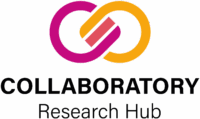2023 PhD Project

About The Project
Suicide support organisations, such as Harmless and their clients currently face a ‘perfect storm’ of societal and economic challenges. Following the pandemic, the Cost of Living Crisis has added to the burden on many of those at risk of suicide as well as those who provide them support. For clients, increased financial pressures can corrode mental health, undermine family relationships and exacerbate loneliness; for support services, helping an increased number of clients cope with acute social and economic stress poses an additional layer of challenge.
Nottingham city is ranked 11th place of 317 districts in England on the government’s indices of deprivation, with 30.8% of the city’s neighbourhoods falling within the 10% of most deprived neighbourhoods nationally. In Nottinghamshire County, an additional 31 neighbourhoods fell within the 10% most deprived in England (Nottinghamshire Insight, 2019). This existing deprivation is important because socioeconomic deprivation is associated with increased suicide risk and prevalence of mental health distress. Moreover, the city and county have recently reported slightly higher suicide rates than the national average (Nottingham City and Nottinghamshire Suicide Prevention Strategy, 2019-2023).
This project adopts the Social Identity Approach to Health (SIAH) to consider how group dynamics may provide clients and services with greater levels of support and long-term resilience. While SIAH research demonstrates that family, friendship, community and therapeutic groups provide psychological resilience, little attention is paid to how these group dynamics can be harnessed to support individuals at risk of suicide during crisis as well as in their recovery afterwards.
This project has been co-created and is supported by researchers from Nottingham Trent University, the University of Nottingham and partners at Harmless and The Tomorrow Project.
Project Aims
The aim of this project is to use the SIAH to better understand factors contributing to risk and resilience among people vulnerable to suicide and to use this understanding to enhance the service delivery of Harmless. Specific research questions include:
- What are the socio-economic and group-level predictors of vulnerability, recovery and resilience among clients using a suicide prevention service?
- How can understandings of these factors predicting vulnerability and recovery be proactively used to provide future resilience to suicide?
- How can the understanding of group dynamics be used to support and enhance the therapeutic alliance between client and service provider at point of contact?
- How can the understanding of socioeconomic precipitating factors and group resilience factors be used to improve Harmless’s longer-term social support services?
The Project Team
- PhD Candidate: Lauren Sherriff
- Lead Supervisor: Prof Clifford Stevenson, NTU
- Co-Supervisor: Dr Matthew Horrocks, UoN
- Community Co-Supervisor: Ana Silva, Harmless
- Community Co-Supervisor: Laura Hughes, The Tomorrow Project
